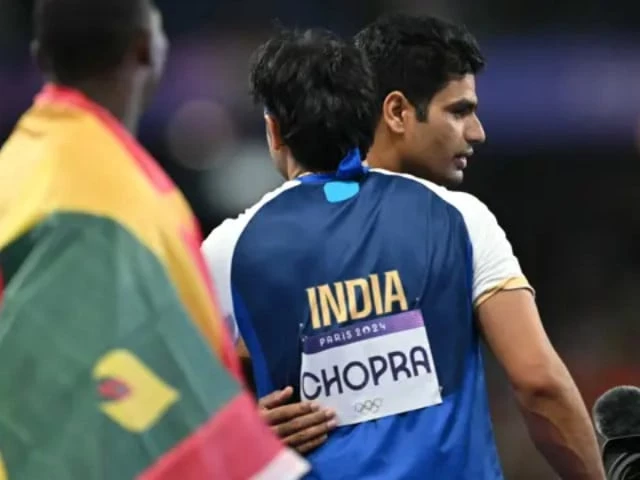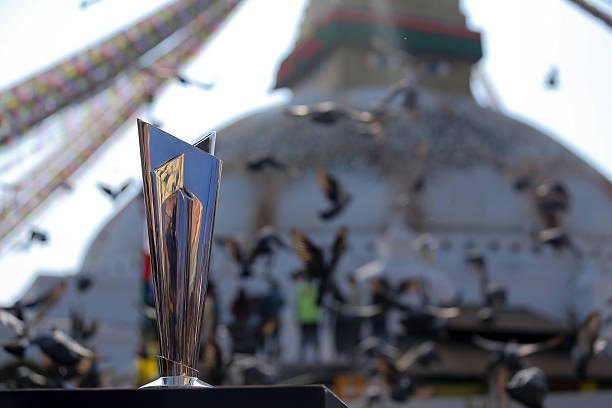The India doping scandal is threatening to derail the country’s ambitious push to host the 2036 Summer Olympics. A surge in doping cases has put Indian athletes under scrutiny, raising concerns about the country’s ability to deliver a clean and fair sporting environment.
IOC Raises Concerns Over India’s Bid
The International Olympic Committee (IOC) has reportedly expressed concerns about India’s poor track record in curbing doping violations. Michael Payne, former IOC marketing director, warned that the integrity of a nation’s anti-doping measures is critical when awarding the Games.
“The IOC must ensure that the host country has a robust doping policy and governance before awarding it the Olympics,” Payne told AFP.
India now faces a race against time to strengthen its anti-doping framework and prove to the global sporting community that it can host a clean Olympics.
Neeraj Chopra Calls Out Doping Crisis
India’s star athlete and Olympic gold medalist Neeraj Chopra did not hold back earlier this year when he admitted that doping was a “big problem” among Indian athletes.
“Athletes should eat well, rest well, and work hard instead of taking shortcuts,” Chopra told local media.
His remarks have sparked national debate on why doping remains so prevalent in Indian sports despite repeated crackdowns.
Government Takes Action
In response, the Indian Olympic Association (IOA) recently formed a new anti-doping panel. The government also passed a National Anti-Doping Bill designed to expand testing facilities, enforce stricter penalties, and “ensure the highest standards of integrity” in sports.
India’s National Anti-Doping Agency (NADA) argues that its rising number of positive tests reflects more aggressive testing rather than worsening drug abuse. From 5,606 samples collected in 2023, 213 tested positive.
The most common banned substance used by Indian athletes remains the synthetic steroid stanozolol.
Why Athletes Risk Doping
The India doping scandal is deeply tied to socio-economic factors. Many athletes risk their careers because success in sports can open the door to coveted government jobs, financial rewards, and lifelong security.
Sports lawyer Saurabh Mishra explains, “Athletes know they can be punished but still risk it all because winning medals can secure them government jobs and financial stability.”
Athletics and wrestling are the worst-affected sports. In July 2025, under-23 wrestling champion and Paris Olympics quarter-finalist Reetika Hooda tested positive and was provisionally suspended — a case that made national headlines.
Ignorance or Deliberate Cheating?
While some athletes unknowingly consume banned substances through contaminated supplements, others are encouraged by coaches or take drugs intentionally as a “shortcut” to international-level performance.
Sports medicine expert Saranjeet Singh said that many athletes resort to doping because they believe they cannot reach global performance standards naturally.
“They cannot achieve the level of performance that they want at the international level and use banned drugs for a shortcut,” Singh said.
The Bigger Challenge Beyond Doping
Although the India doping scandal is a major concern, experts say that India also faces challenges with event management and governance. Memories of the corruption-ridden 2010 Commonwealth Games in New Delhi still haunt the country’s sporting reputation.
“The bigger issue is confidence in the operational delivery capabilities of the host,” Payne noted, adding that India must prove it can stage an Olympics without logistical failures or scandals.
India’s Road to Redemption
With competitors like Indonesia, Turkey, Chile, and Qatar also bidding for the 2036 Olympics, India must act decisively to restore faith.
Key steps experts recommend include:
- Education & Awareness: Training athletes and coaches about banned substances.
- More Testing: Increase both in-competition and surprise out-of-competition tests.
- Nutrition Support: Provide athletes with safer, scientifically approved supplements.
- Transparency: Publicize doping cases to deter others.
If India fails to clean up its act, it risks losing not only the 2036 Olympic bid but also the careers of countless athletes whose reputations could be unfairly tainted by association.
Source: The Express Tribune



